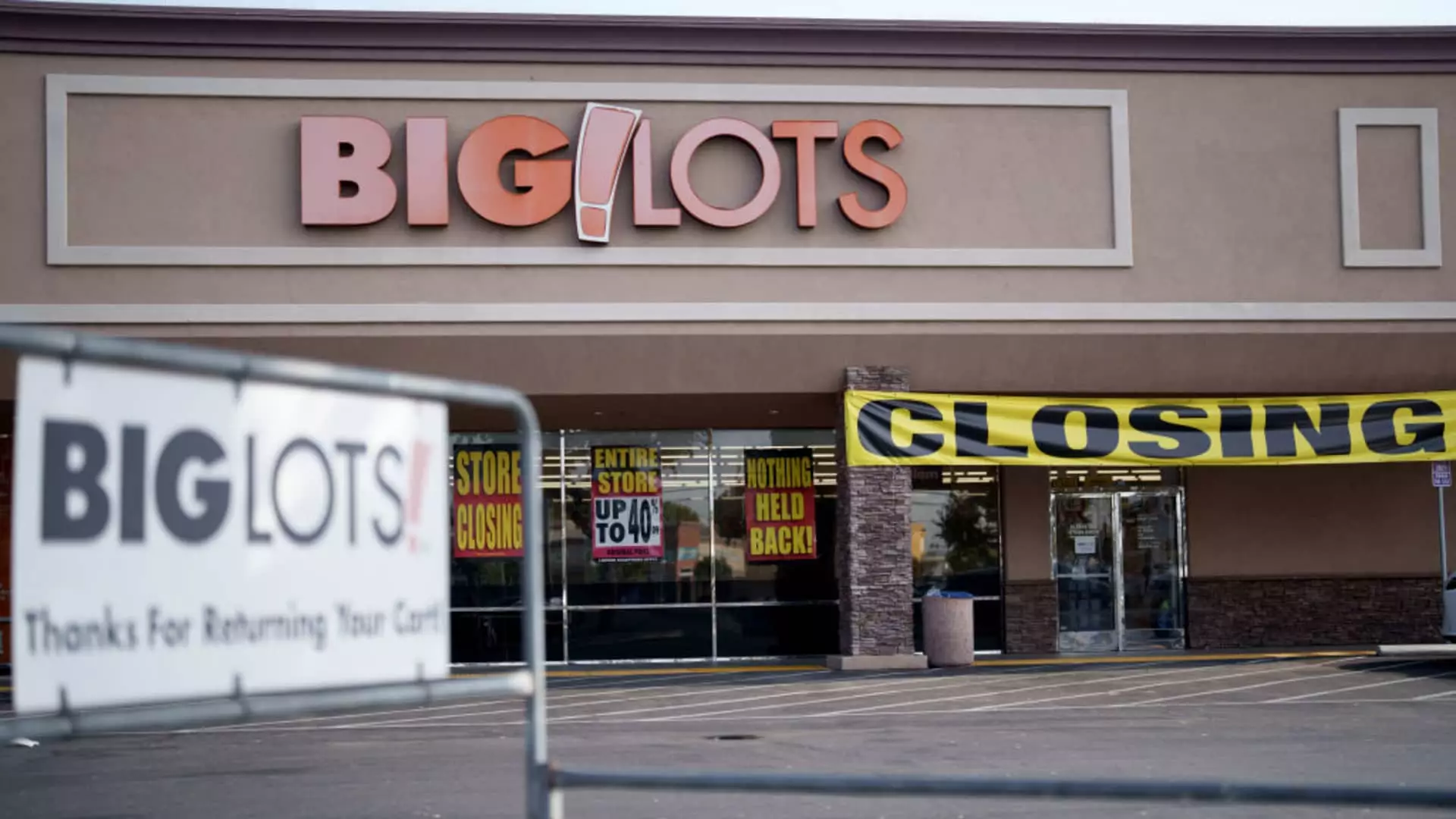Discount home goods retailer Big Lots has recently filed for bankruptcy, signaling a major decline in its business operations. The company, known for its low-priced furniture and decor, has faced challenges due to high interest rates and a sluggish housing market. These factors have significantly slowed down the demand for its products, leading to a decline in sales and revenue over the past few years. Big Lots has agreed to sell its business to private equity firm Nexus Capital Management for approximately $760 million, in an effort to address its mounting debts and liabilities.
In response to its financial struggles, Big Lots has announced plans to close nearly 300 stores as part of its restructuring process. This move aims to help the company fix its balance sheet and reduce costs, ultimately aiming to improve its overall financial stability. Despite the challenges, CEO Bruce Thorn remains optimistic about the future of the company, highlighting the importance of offering extreme bargains, optimizing operational efficiency, and delivering a superior customer experience. Thorn’s vision for Big Lots focuses on becoming a leader in extreme value retail, emphasizing the company’s commitment to providing affordable home goods to consumers.
In addition to macroeconomic challenges, Big Lots also faces stiff competition from other retailers in the home goods space. Companies like Wayfair, Walmart, and TJX Cos.’ Home Goods offer similar products at competitive prices, posing a significant threat to Big Lots’ market share. According to industry experts, Big Lots struggles to differentiate itself from its competitors and often falls short in terms of value for money. The company’s assortment of products is described as jumbled and muddled, creating a subpar shopping experience for customers. These factors contribute to Big Lots’ inability to attract and retain customers in a highly competitive market.
Despite its current challenges, Nexus Capital Management expressed confidence in Big Lots’ potential for growth and success. The private equity firm sees an opportunity to revitalize the iconic brand and restore it to its former glory as America’s leading extreme value retailer. By partnering with Big Lots, Nexus aims to leverage its expertise and resources to drive business growth and profitability. As part of the bankruptcy process, Big Lots will undergo a court-supervised auction, giving potential buyers the opportunity to make competitive bids for the company.
The downfall of Big Lots serves as a cautionary tale for retailers operating in a challenging economic environment. Factors such as high interest rates, sluggish consumer demand, and intense competition can have a significant impact on a company’s financial health and long-term viability. By analyzing the case of Big Lots, retail businesses can learn valuable lessons about the importance of strategic planning, operational efficiency, and customer-centricity in a rapidly changing market landscape. It is imperative for retailers to adapt to evolving consumer trends, differentiate themselves from competitors, and prioritize financial stability to thrive in the highly competitive retail industry.

